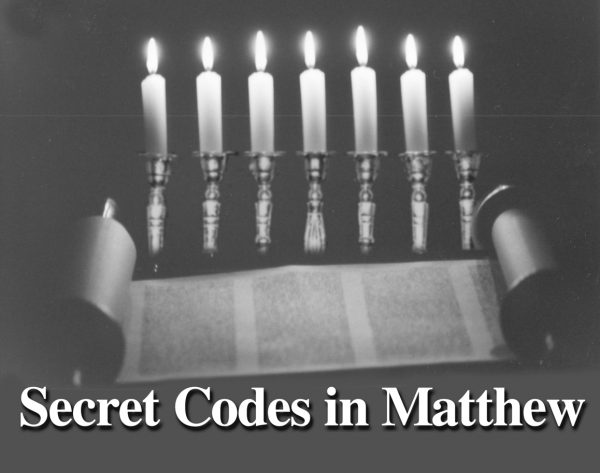The Secret Codes in Matthew: Examining Israel’s Messiah, Part 16: Matthew 21:1-46, by Kevin M. Williams
Does Messiah pay taxes? Journey through the Gospel to the Hebrews with Kevin Williams and find out.

And when they had approached Jerusalem and had come to Bethphage, to the Mount of Olives, then Jesus sent two disciples, saying to them, “Go into the village opposite you, and immediately you will find a donkey tied there and a colt with her; untie them, and bring them to Me. “And if anyone says something to you, you shall say, ‘The Lord has need of them,’ and immediately he will send them” (Mathew 21:1-3).
In Part One of The Secret Codes in Matthew, and nearly every volume since this study began, the assertion was made that the apostle Matthew wrote this gospel as a testimony to the Jewish people. The assumption when we first began was that this born anew tax collector wanted the Hebrews to recognize the Messiah of Israel in his text. The series’ title—The Secret Codes in Matthew—intimates that there are aspects of this book that, unless viewed from a Jewish perspective, remain secret to Gentile eyes.
The same is true in the passage above. Within Judaism of the day, there was great anticipation for the coming of the Messiah. Their theology taught that the Messiah might come on a white horse, in which case he would arrive as a victorious king. However, they also believed that he might arrive riding on a donkey, in which case, Israel would have been judged unworthy.
“Rabbi Alexandra said, ‘Rabbi Y’hoshua set two verses against each other; it is written, “And behold, one like to the son of man came with the clouds of heaven” (Daniel 7:13), while elsewhere it is written, “See, your king comes unto you, … humbly riding on a donkey” (Zecharaiah 9;9). [He resolved the paradox by saying that] if they deserve it [he will come] with the clouds of heaven, but if not, lowly and riding on an ass.’” (Sanhedrin 98a).
In other words, if the Messiah were to arrive on a donkey, Israel would not deserve him. From our vantage, we might agree with great vigor, citing example after example of her transgressions. However, it would be wiser—and more harmonious with the will of the Holy Spirit—to ask ourselves if we deserved Him when He came to us? If the answer is “no” (as it should be), then we might be better served to join our Jewish brethren, arm-in-arm and in our sin, to greet the only One worthy to cleanse us of our collective iniquity.
To believe that Israel first needed to be worthy—either among the Jewish or Gentile peoples of the world—would supercede the Messiah’s divinely appointed purpose. A redeemed people would have no need of a Redeemer. Yeshua (Jesus) said it best when he said to them, “It is not those who are healthy who need a physician, but those who are sick; I did not come to call the righteous, but sinners” (Mark 2:17). May his name be praised for His goodness toward us!
So the Messiah’s arrival on the colt of a donkey fit perfectly with the Jewish religious thought of the day. They were not worthy—as none of us could claim to be.
Yeshua’s selection of a donkey and her colt not only found them unworthy by their own theology, but the colt may be significant for another reason. In David Stern’s Jewish New Testament Commentary, he writes, “Perhaps Mattityahu [Matthew] mentions two donkeys for a different reason, namely, to emphasize the immaturity of the colt, too young to be separated from its mother” (p. 62, brackets mine). This would indeed, be a lowly and unclean animal. Not at all a steed worthy of the King of kings.
Category: Biblical Studies, Pneuma Review, Winter 2005


